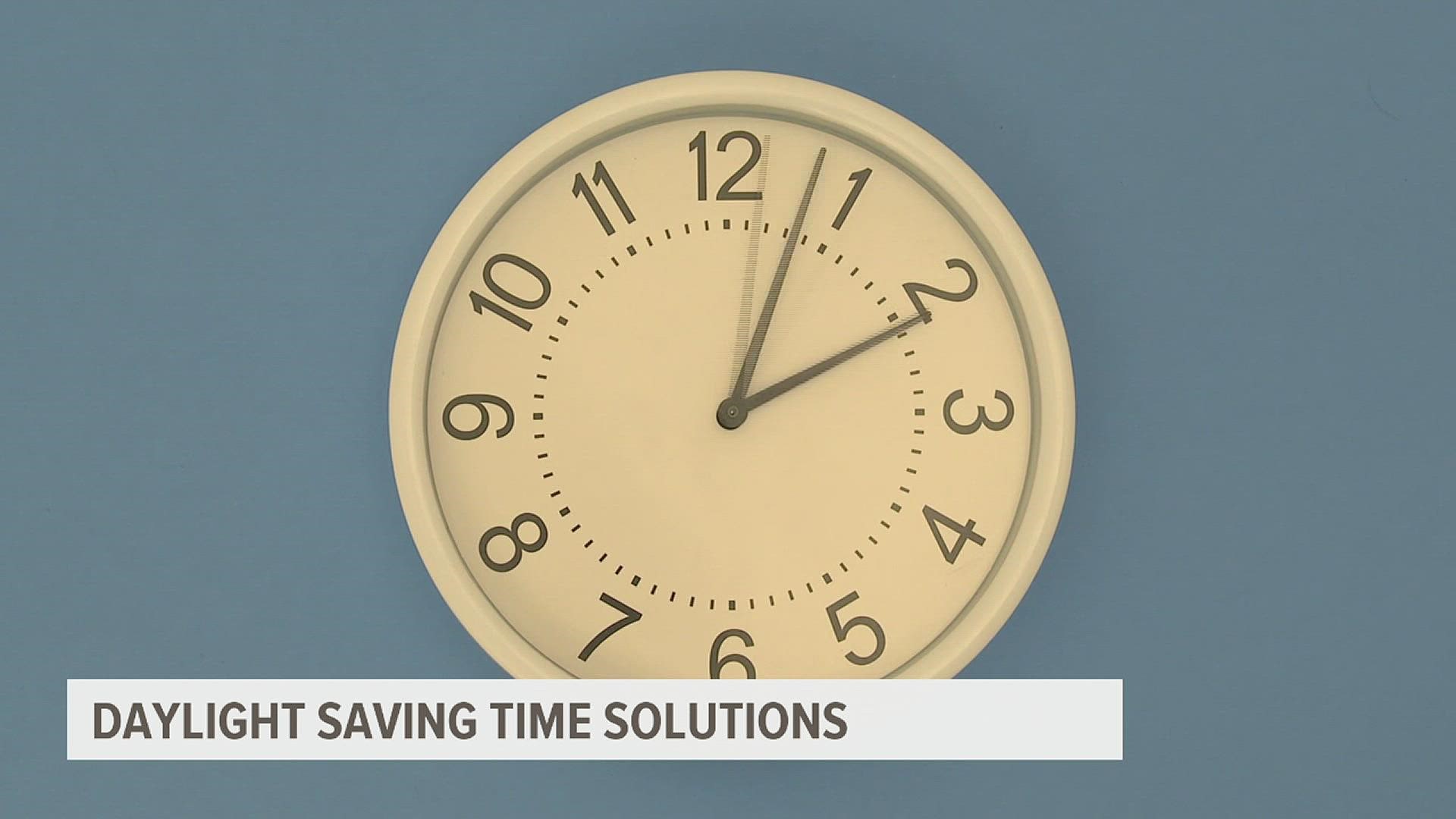HARRISBURG, Pa. — Before bed on Saturday we all set our clocks back an hour, or didn’t remember and did it this morning after waking up. Either way, we’re all back on Eastern Standard Time.
But more and more people say Daylight Saving Time does more harm than good.
Moving forward an hour in the spring leads to more heart attacks and more traffic accidents, according to studies published in the New England Journal of Medicine, as well as more workplace injuries, according to a Michigan State University study.
A 2013 analysis by Chmura Economics & Analytics found each spring jump forward, Americans lose $434 million in productivity and medical costs.
Many people believe changing our clocks twice a year is archaic and should stop. The question remains: should the extra daylight hours go to the morning or evening?
Pennsylvania state lawmakers are proposing solutions on both ends.
State Sen. Scott Martin (R-Lancaster) thinks Pennsylvania should stay permanently on Daylight Saving Time, meaning evenings would have more light.
Moving permanently to Daylight Saving Time requires an act of Congress, so Martin introduced legislation that would urge Congress to do just that.
An act of Congress would also ensure uniform time across the country.
“Does it make sense to have New Jersey a different time than Pennsylvania, or Maryland different?” Martin said.
Arguments for permanent Daylight Saving Time have some basis in supporting mental health, according to Dr. Melissa Brown, a clinical manager and psychologist at UPMC.
More light in the evening promotes the body’s natural production of serotonin, which boosts your mood. Darker evenings, meanwhile, boost the body’s natural production of melatonin, which makes you sleepy.
“Now we have no motivation, we’re tired all the time and we just want to eat and hibernate,” Brown said.
A national act of Congress is unlikely to happen anytime soon, though. State Rep. Russ Diamond (R-Lebanon) thinks switching permanently to Eastern Standard Time would be more realistic, and would pressure other states to follow suit.
“Pennsylvania is not called the Keystone State for no reason,” Diamond said. “When Pennsylvania does this, other states will be pressured to follow just because of our positioning geographically.”
Diamond pointed out Standard Time has benefits as well. It means mornings are lighter, so school children trying to catch the bus are at less risk of accidents. If Daylight Saving Time lasted through winter, some areas would stay dark until around 8:30 a.m.
Arizona and Hawaii are the two states that do not observe Daylight Saving Time. As for whether Pennsylvania will follow, only time will tell.

